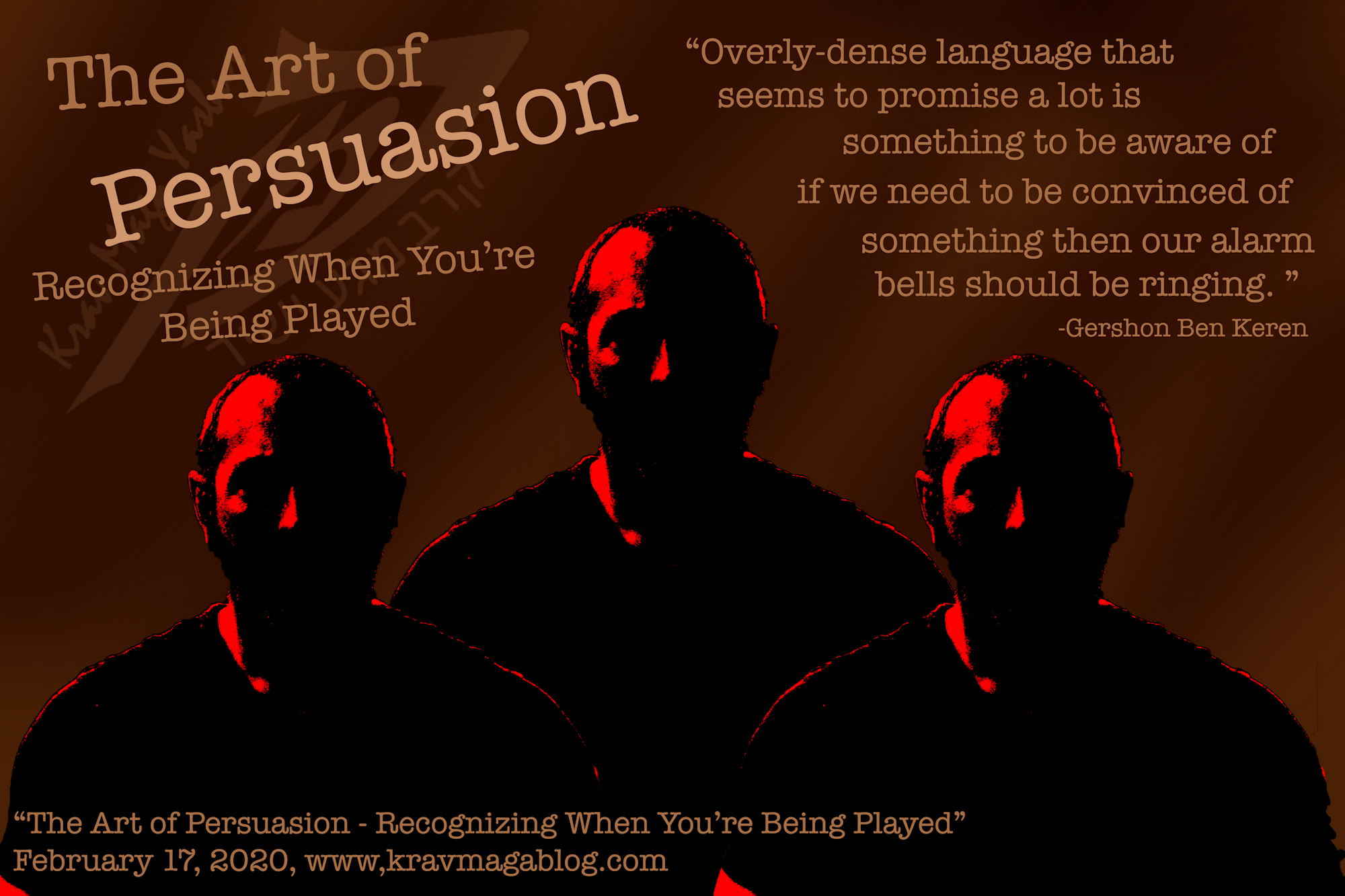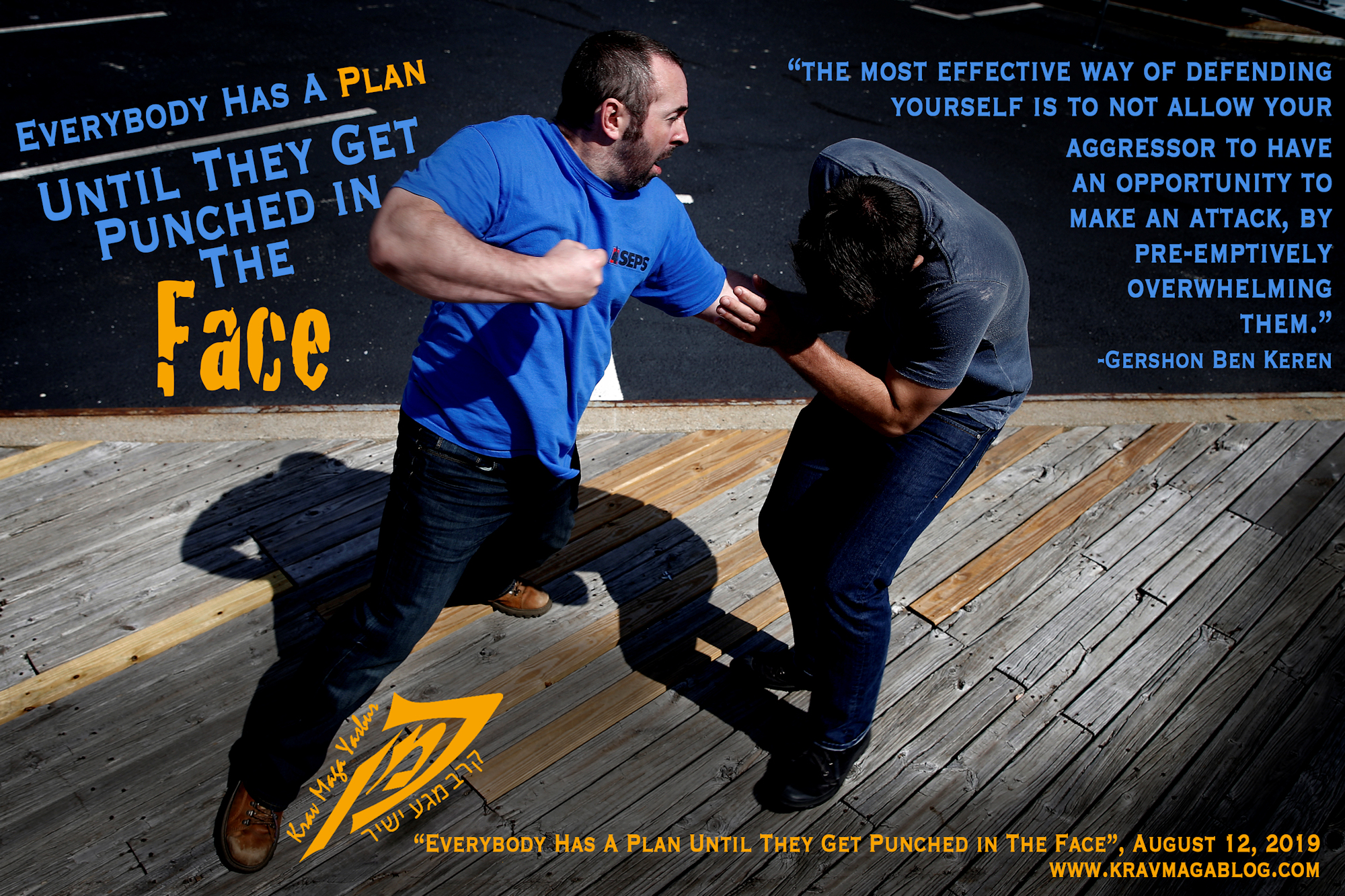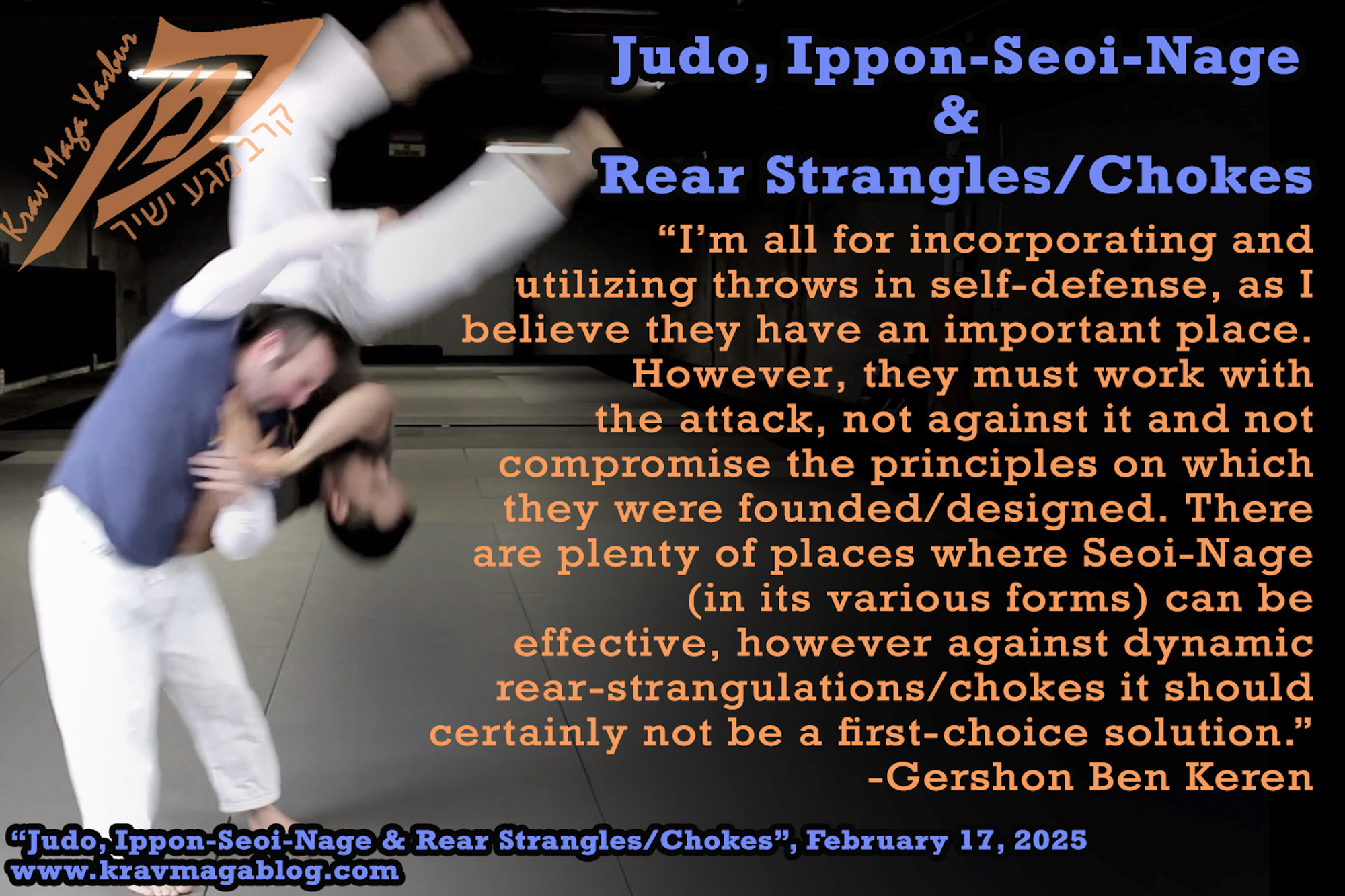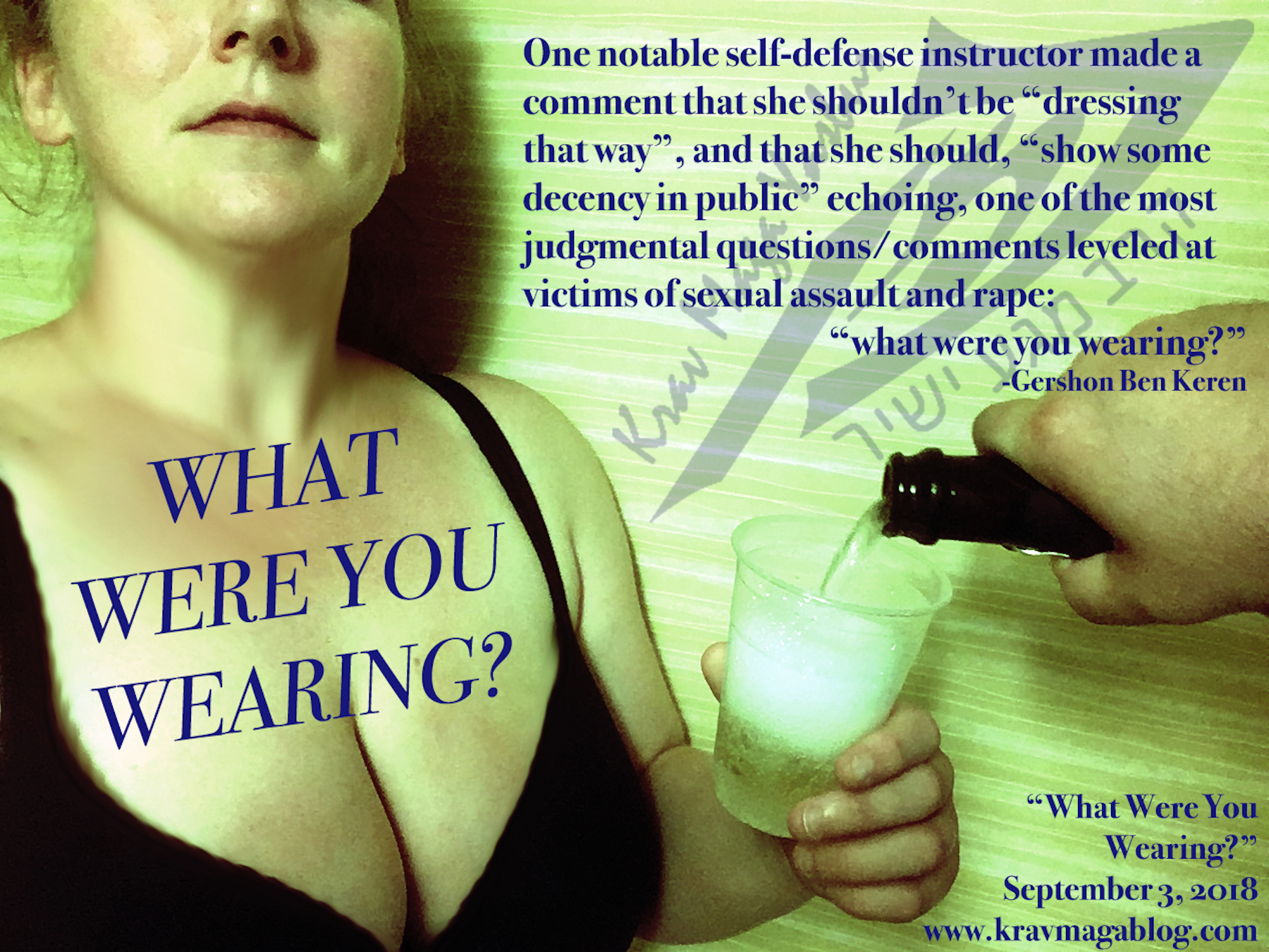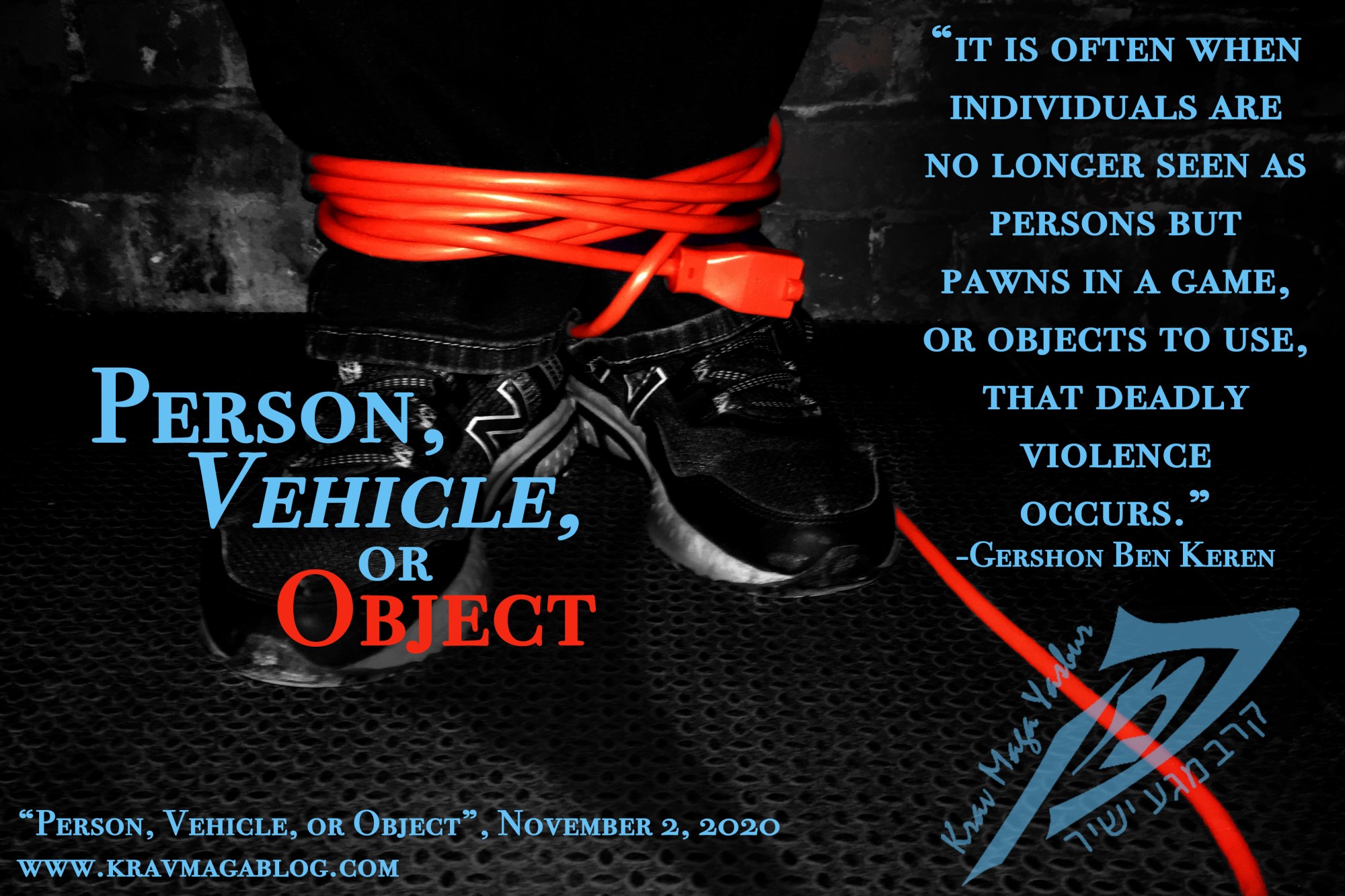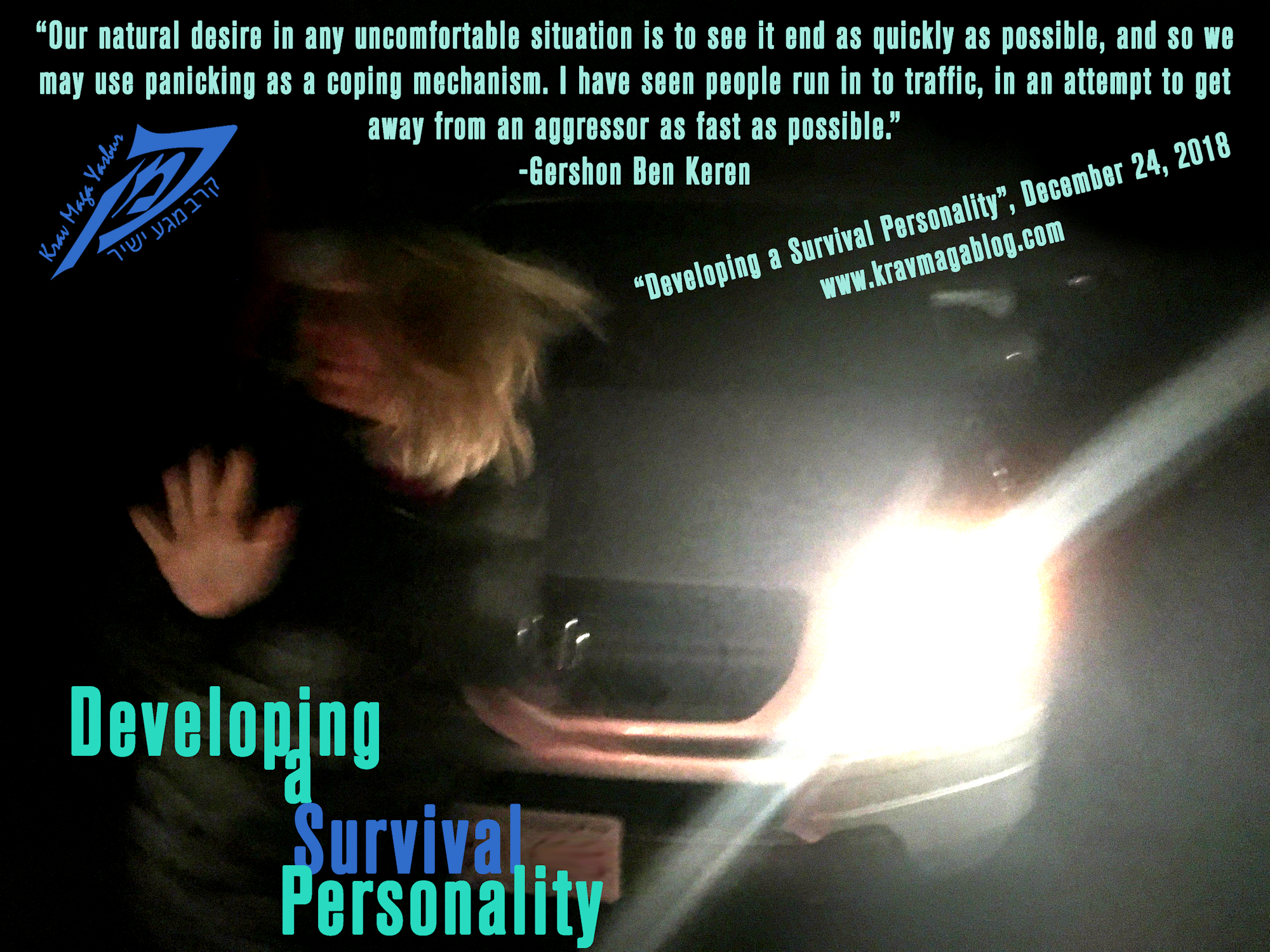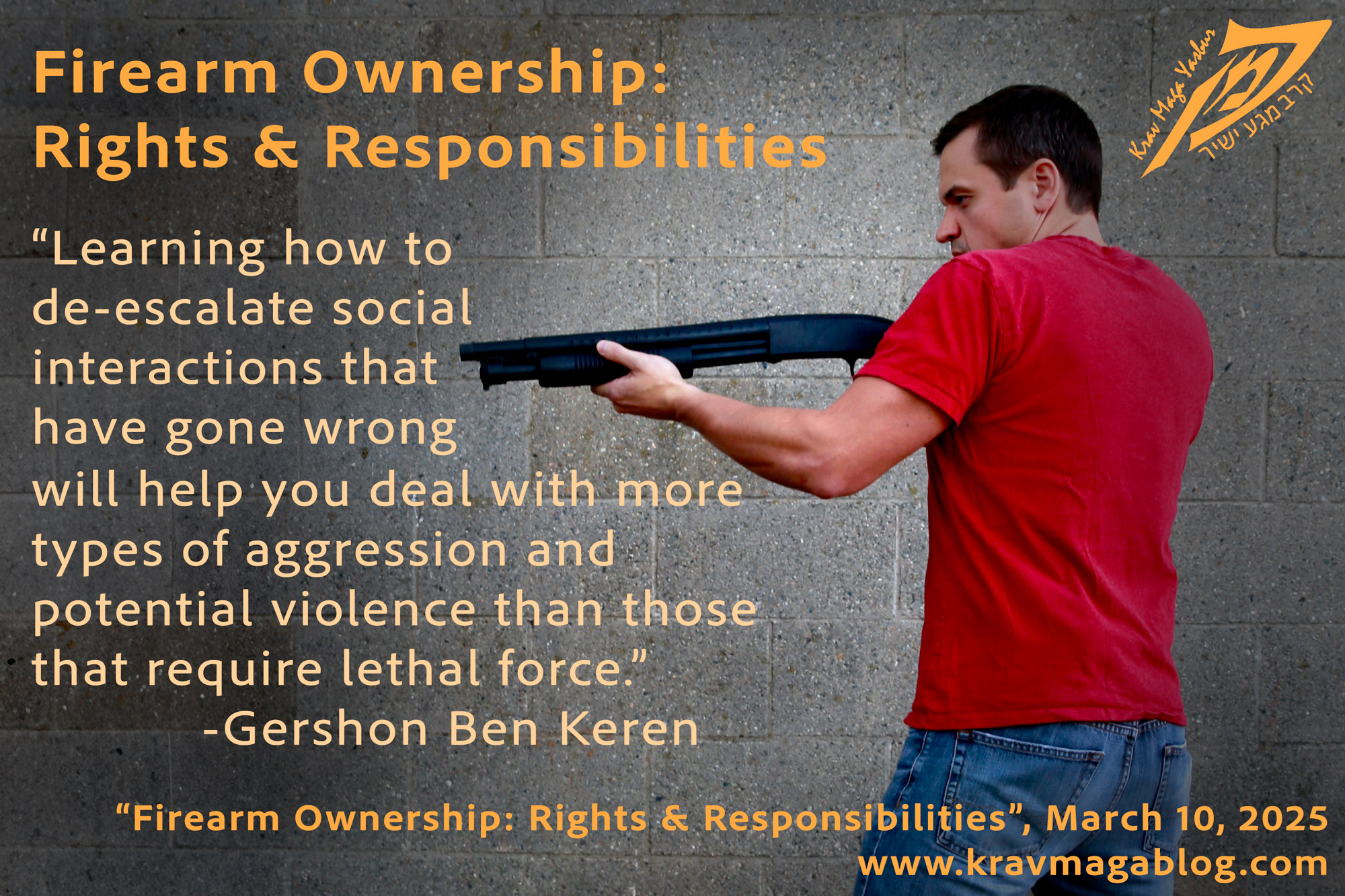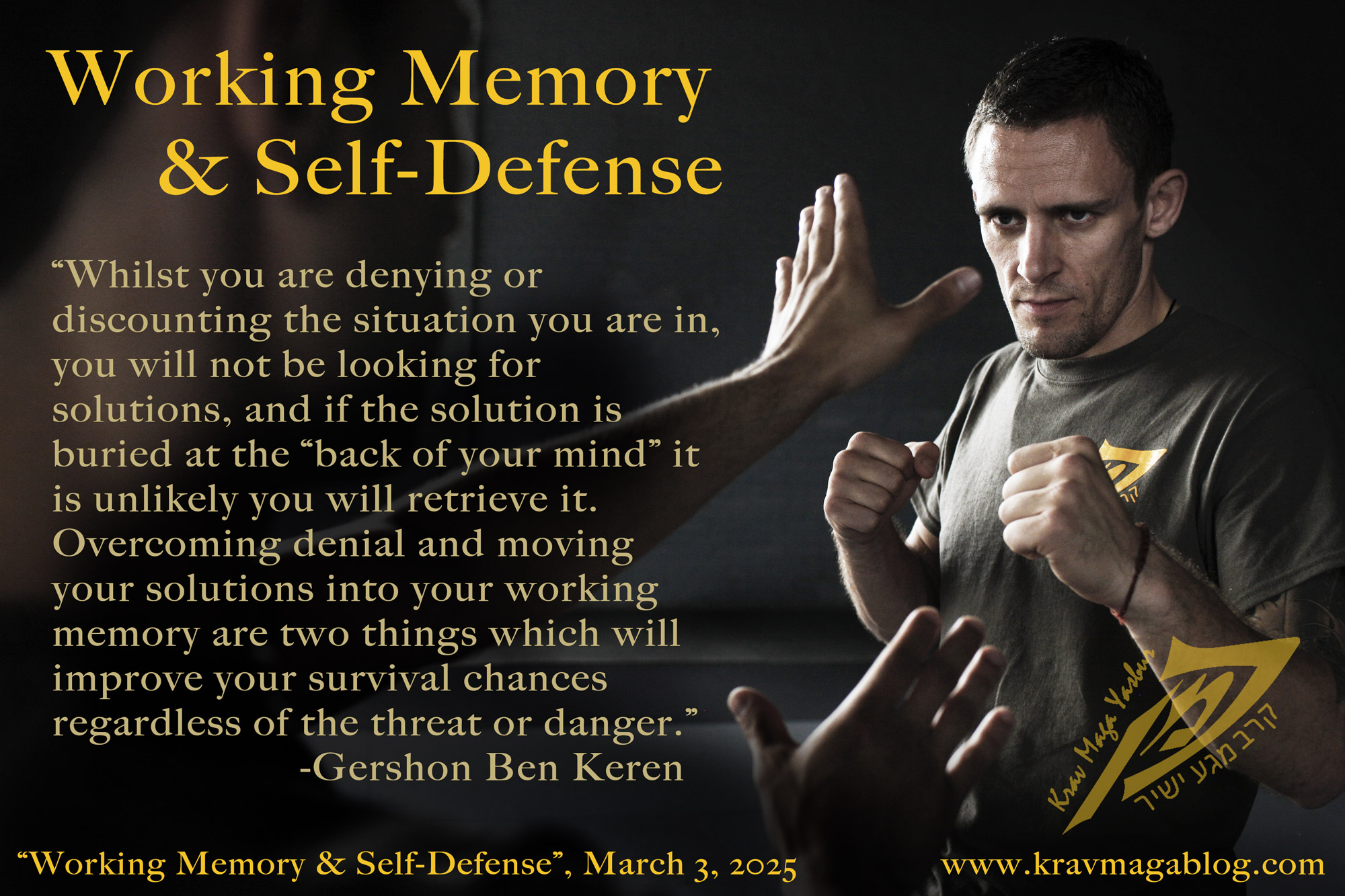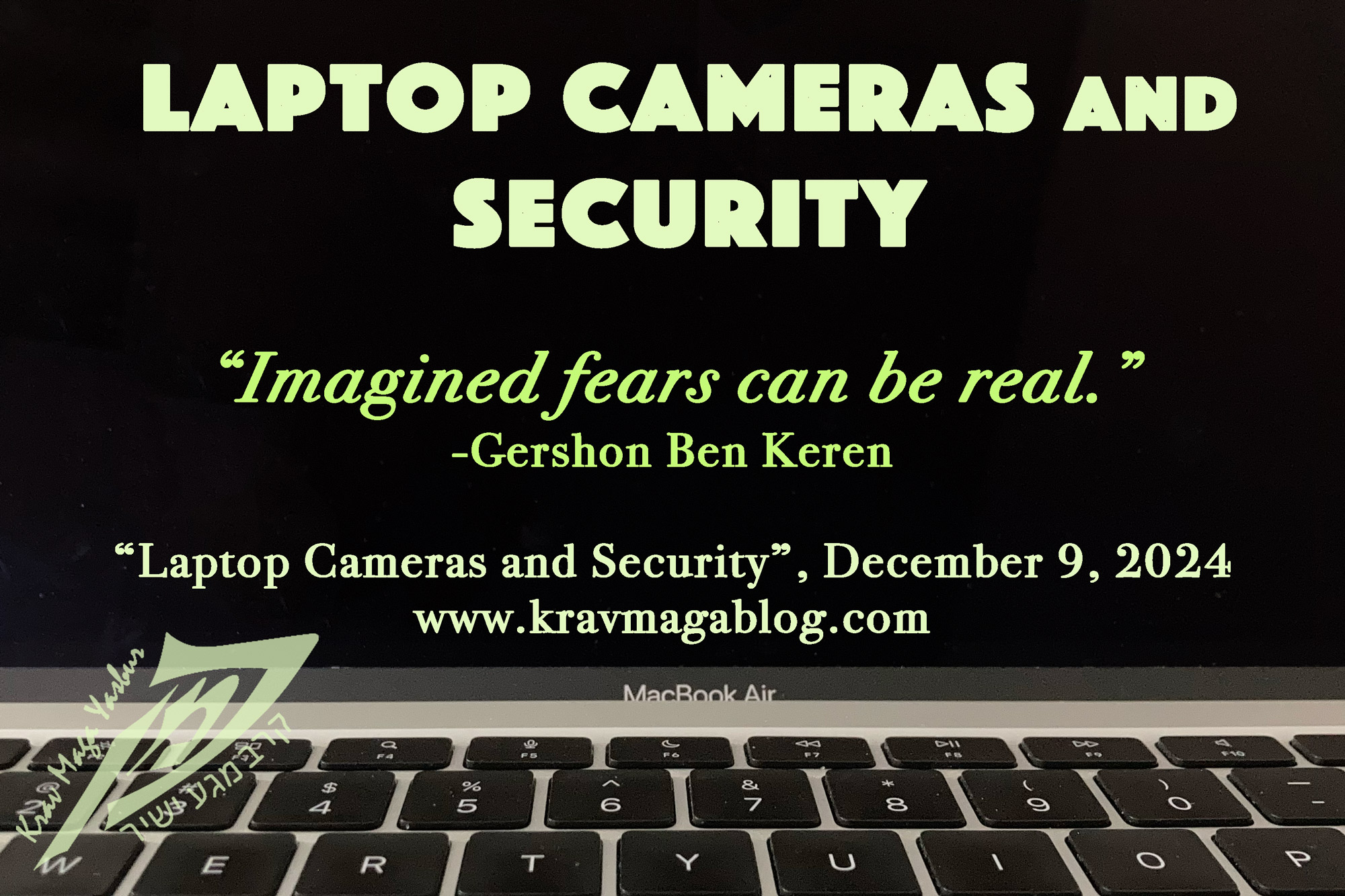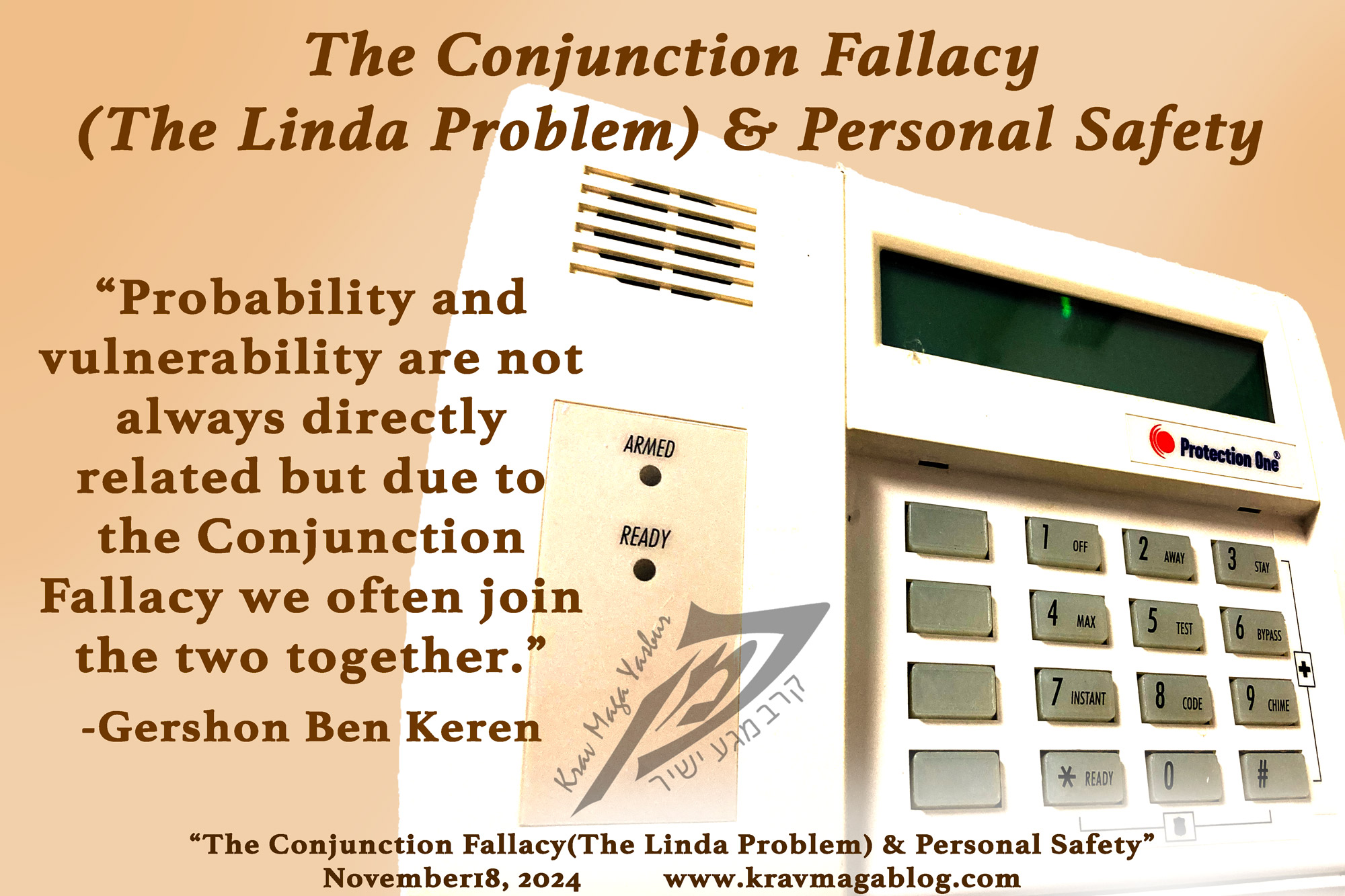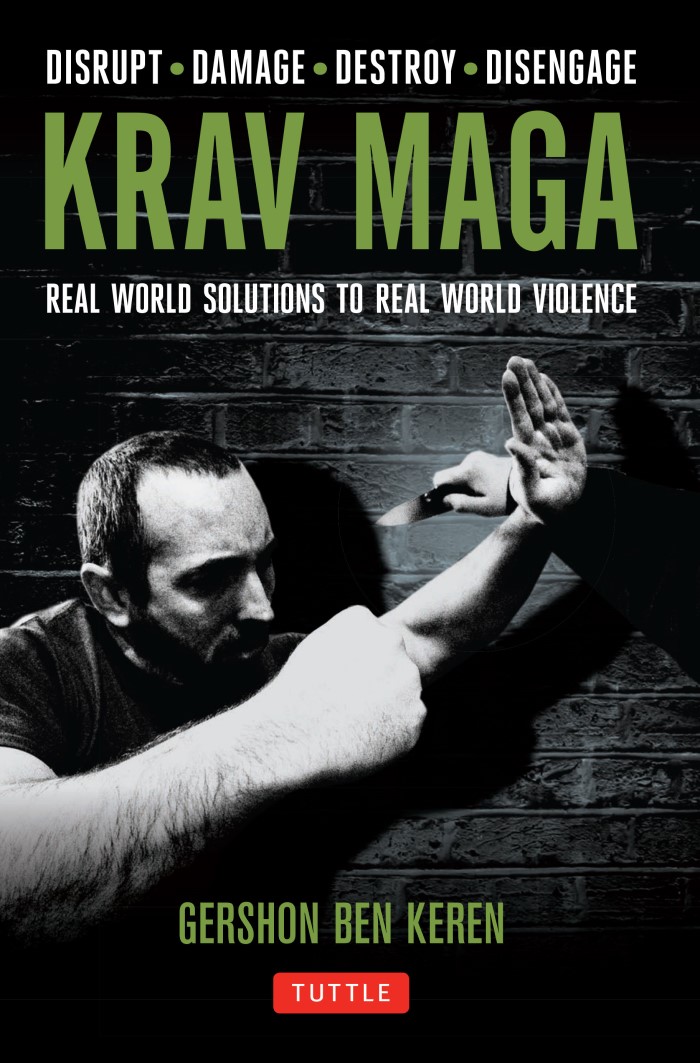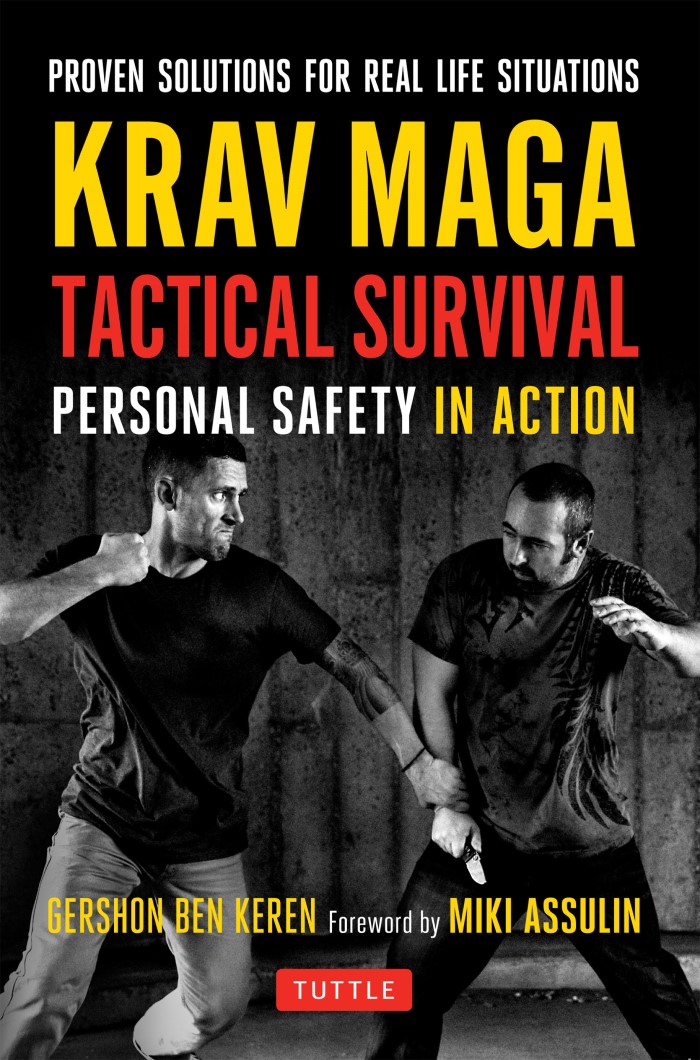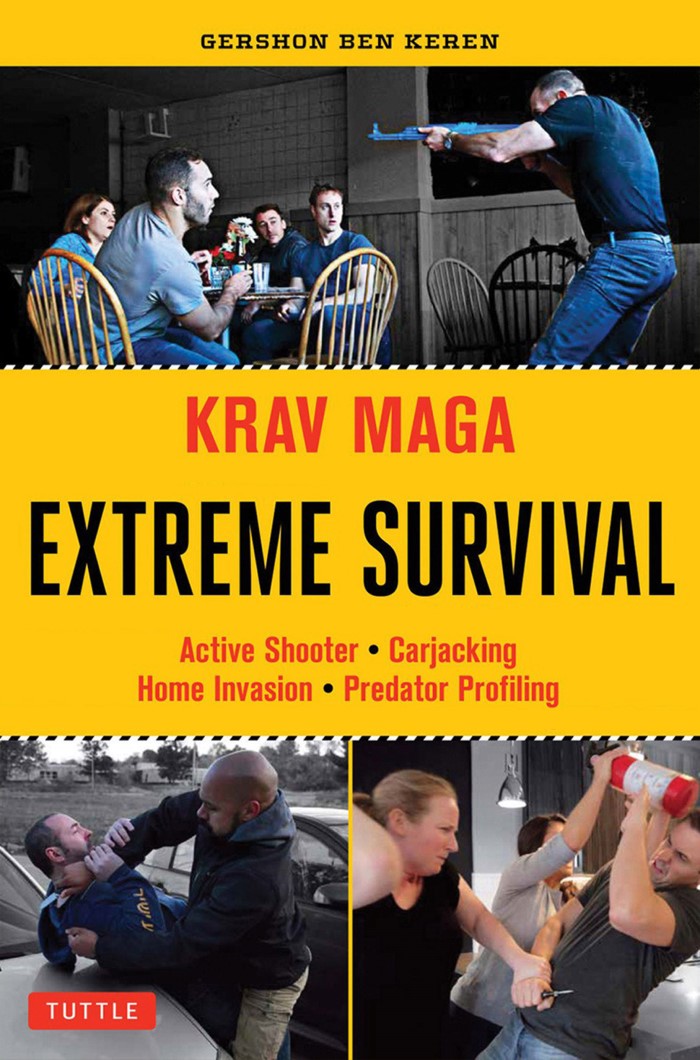Developing A Survival Personality, is an article written by Gershon Ben Keren, a 5th Degree Black Belt in Krav Maga, who teaches Krav Maga in Boston, MA. He has also authored three Amazon best-Selling Books on Krav Maga.
Whilst we may be born with an innate will to survive and character traits that help us develop resiliency etc., it is up to us to develop a survival personality, that will help us deal with difficult and potentially dangerous incidents and situations. When tough times visit us, we don’t want to be the caricature that stands there looking up to the sky, shaking our fist, and shouting, “Why God, me?”, but rather the person who can handle what is facing us, and deal with it, in a manner that leaves us with little consequence or trauma. Whilst we may “find” ourselves in a high stress situation, it is more likely that who we are going into it, will determine who we are during it, and how well we handle ourselves whilst in it. In developing such a personality, we must recognize and cultivate 5 basic things: 1), an understanding that we have value and are worth fighting for, 2), an ability to accept rather than question the situations we find ourselves in, 3), a knowledge that the only person who can get us through – and possibly out of – the situation, is ourselves (there may be third-parties and external agencies that can assist us, but ultimately it is down to us), 4) the ability not to panic and attempt to do everything at once i.e. time exists to stop everything at once and we should use it, and 5), tied to this, the ability to execute step-by-step plans (preferably pre-thought and developed). This “personality” needs to be developed in order to combat some of the natural responses that we may have when placed in situations of high stress and duress, including incidents of violence.
There is a time to question things, and a time to accept them. If you are facing an angry aggressor, who you’ve accidentally spilt a drink over – either due to them bumping into you, or you bumping into them – it is not the time to question what has happened, discern responsibility and blame, and/or work out how you might have avoided this situation in the first place. Our ability to question and analyze in order to solve problems is a useful tool when we have the time, and aren’t in imminent danger, but we may unfortunately try to use this as a coping mechanism, to prevent us having to thinking about the potential consequences of the incident we are now facing i.e. a type of procrastination, that prevents us from dealing with what is facing us. It is a form of denial, that will eat up time and prevent us from deliberating, deciding upon, and executing a plan of action. The time to question the potential stupidity of undertaking a certain course of action, such as going to a well-known biker bar, famous for its incidences of violence, is after the current situation has been dealt with — when you debrief yourself after the event. Whilst in the midst of a situation, the first step to dealing with it, is by accepting your present reality.
We may find ourselves using humor as a coping mechanism, telling ourselves that the person who is in our face is joking, playing a prank and not really serious about the threats they are making. This is another form of denial, that prevents us from accepting what is happening. We may also “fear grin”, as an innate behavioral response that either hasn’t evolved out of us, or still has some purpose that we’re not quite sure of — but grinning, smirking and smiling, etc. normally escalates situations with emotional and/or aggressive humans. Monkeys and Chimps have been observed to show teeth and smile/grin as an act of submission when there are tensions between them. This action may normalize a tense situation, communicating a desire “to get back to normal”, and demonstrate that this is what the submissive monkey/chimp wants to happen next, rather than for things to head in the other direction. When dealing with emotional individuals, we must be aware of our own body language, such as grinning, which may be a natural response to a tense situation but is in fact socially inappropriate, and potentially dangerous.
Another response we can have to an aggressive/dangerous verbal altercation is something referred to in psychology and psychiatry as the Delusion of Reprieve. It is usually used to describe the response of condemned prisoners to their imminent execution – devoid of any concrete plans that could see them escape their death, they convince themselves that somehow, at the very last minute they will be reprieved. It’s a form of denial; an inability to accept what is happening to them, coupled with the knowledge that they don’t have the means to change their situation, and so to cope they pin their hopes on to an external factor or influence that could alter the course of events. A very long time ago, I used to conduct house evictions, and possession orders alongside a Bailiff/Enforcement Agent. It was not uncommon to turn up on the day that the tenants had to leave the property to find that they hadn’t packed or made any plans to find alternative accommodation, etc., despite having been informed months earlier, that they would have to vacate the property by a certain date. Sometimes when talking to a tenant, they’d be apologetic and explain that they thought something would happen, or someone would step in and intervene on their behalf to prevent the eviction going ahead; they’d not talked to any official or organization about their situation, they just convinced themselves through blind hope, right up until the last minute, that everything would work out for them. I once worked with a Russian who was fond of saying, “there’s always hope, and then that dies.” If we are able to accept that we are the ones responsible for dealing with and getting ourselves out of a violent or dangerous predicament, then we are much more likely to be successful, instead of hoping and waiting for some external party – convincing ourselves that someone will have called the police, or informed security of our predicament etc. - to deal with it on our behalf (unless this is part of a pre-designed plan, when we know somebody will be coming to our assistance).
Our natural desire in any uncomfortable situation is to see it end as quickly as possible, and so we may use panicking as a coping mechanism. I have seen people run into traffic, in an attempt to get away from an aggressor as quickly as possible. One of my instructors told of a friend who’d been at a house party when somebody entered the living room, hacking and slashing at everyone with a machete. His friend headed for the nearest door, opened it and when confronted by a short wall, jumped over it to escape. In his understandable panic he’d forgotten that the party was in a block of flats thirteen floors up. In such a situation, quick action is imperative, however there is a huge difference between running from danger and running to safety. It may seem paranoid, but whenever I enter a new building, I plan my exit(s) in the event of an emergency, and try to figure out where different doors lead to, etc. Having these pre-built mental maps, enables me to construct and potentially execute an appropriate plan in the event of an emergency. This isn’t a complicated or elaborate process, but a habitual one that takes a few seconds – if I was Jason Bourne it would be a much more involved and detailed one, but I try not to get ahead of myself when taking safety precautions.
Most violent and dangerous incidents aren’t dealt with or solved in one moment, it’s a step-by-step incremental process, whereby bit-by-bit you improve your situation. Whilst we may hope for things to be over quickly, we must accept where we are, and what we are dealing with, and look to manage all the moving parts effectively. Ultimately, we should be doing this because we value ourselves and our value to others, and this is just one of the reasons why we should have a framework of how to act and behave in the types of situations we are likely to face. All of this needs to be internalized and become part of who we are, rather than be a set of external behaviors that we acknowledge, and only look to roll out when everything hits the fan.
0 COMMENTS